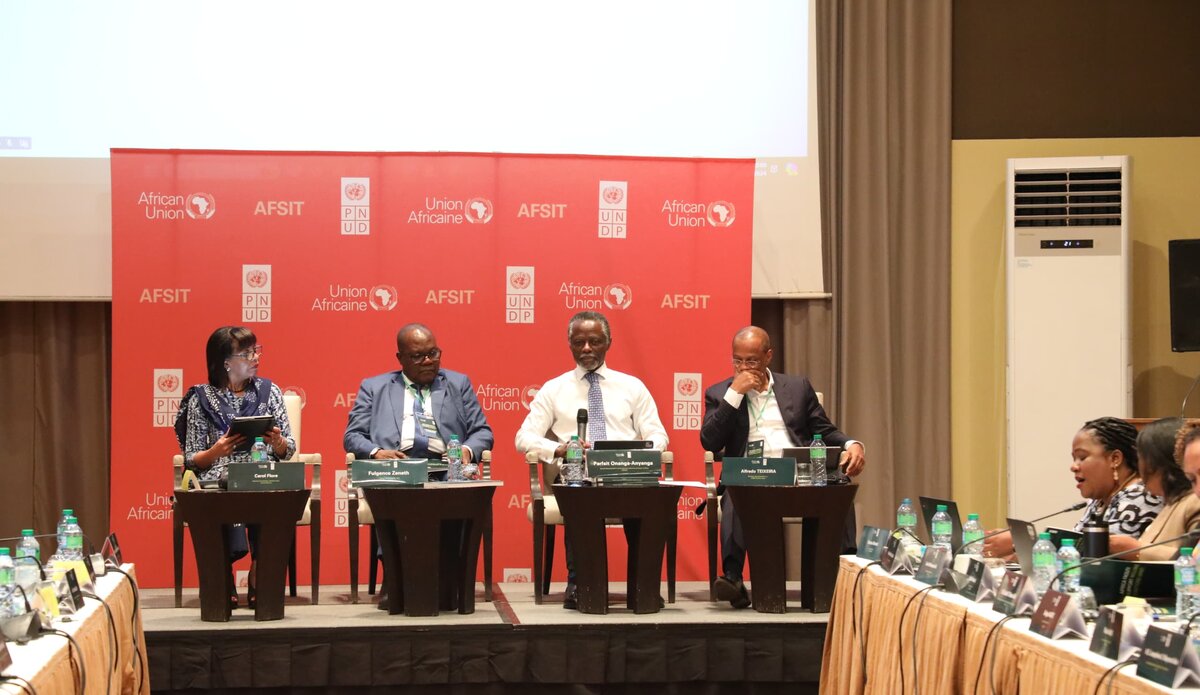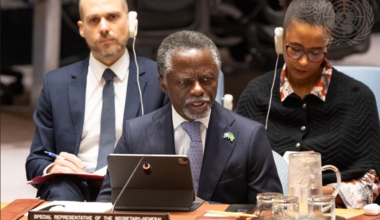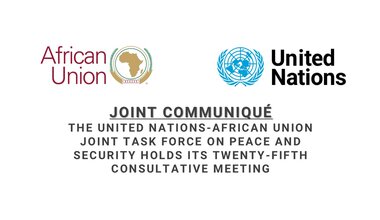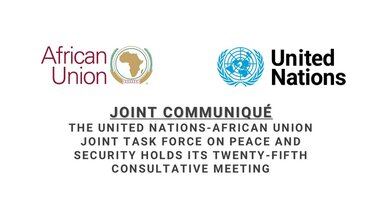SRSG to the AU and Head of UNOAU attends High-Level AFSIT dialogue on the role of the AU, RECs and the UN in West and Central Africa
From 5 to 6 August, SRSG Parfait Onanga-Anyanga took part in the high-level Africa Facility to Support Inclusive Transitions (AFSIT) dialogue on the role of the AU, regional economic communities (RECs) and UN in West and Central Africa, organized by UNDP and the AU.
The event was also attended by the Special Representative of the Secretary-General (SRSG) and Head of the United Nations Office for West Africa and the Sahel (UNOWAS), Leonardo Santos Simão; the SRSG for Central Africa and Head of the United Nations Regional Office for Central Africa (UNOCA), Abdou Abarry; the Special Coordinator for Development in the Sahel, Mar Dieye; and the Director of the Western Africa Division, Nathalie Ndongo-Seh. The AUC was represented by the AU Commissioner for Political Affairs, Peace and Security, Ambassador Bankole Adeoye, and by the Director for Governance and Conflict Prevention, Patience Zanelie Chiradza.
The dialogue aimed, among other things, to understand the rise of unconstitutional changes of government (UCGs) in the region, assess the progress of ongoing transitions and their potential challenges, and develop actionable strategies to address these challenges.The discussion highlighted weak governance and poor economic development as drivers of UCGs and radicalization and called for increased investments in the humanitarian, development, and peace nexus. The issue of sanctions was also extensively discussed.
The majority of participants noted that the sanctions caused more harm than they produced results, and argued that in the recent cases of Mali, Burkina Faso, and especially Niger, sanctions have led to a breakdown of trust between Member States and regional and continental organizations. The AUC provided a nuanced perspective, noting that sanctions are an integral part of the legal framework agreed upon by Member States, playing an essential role in marking the unconstitutional nature of these regime changes; at the same time emphasizing the crucial need to maintain communication channels and engagements with the States in breach.
The conference made several strong recommendations in favour of inclusive transitions. Participants emphasized that countries are all at different stages of transition with varying needs and shared several recommendations to strengthen AFSIT's actions, including designating focal points in each REC/RM to work in synergy with AFSIT, and for the AFSIT Secretariat to connect with youth programs such as YouthConnekt to enhance the inclusiveness of transitions.
 UN
UN






